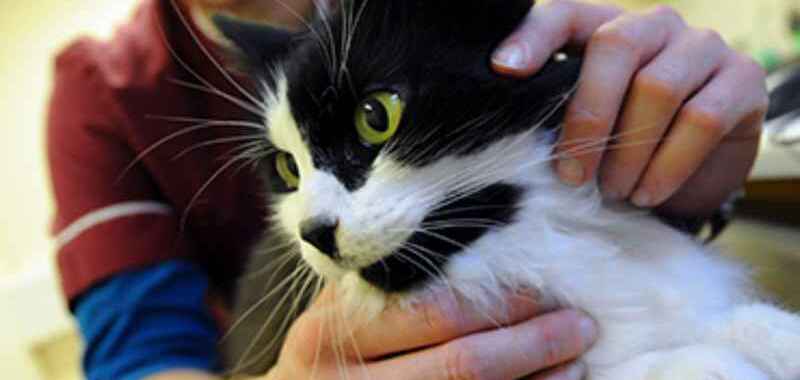
New pet owners can get easily worried when it comes to cats especially if they are not used to their behavioral changes. What many people don’t realize is that cats change as they grow up just like humans and while most things that they do shouldn’t be a cause for worry, it is also extremely important to pay close attention to these changes so you are aware when something is going wrong.
For example, one cat might groom itself every hour and this may be normal for that cat. However, if your cat doesn’t usually do that and has started grooming itself incessantly, then it might be better to bring them to the vet.
Things like meowing a lot or drinking a lot of water do not always indicate that something is wrong with the cat’s health. However, it is also important that we know how to recognize these signs if they stick out and pay close attention to their health and safety. After all, when we get a cat, we sort of make a vow to give them the best care possible.
And even if think you are being paranoid and annoying your vet, it is always better to be safe rather than sorry later. I mean cats can’t exactly vocalize that something is wrong with them. However, what cats can do is exhibit the signs or show you the problem in some other way.
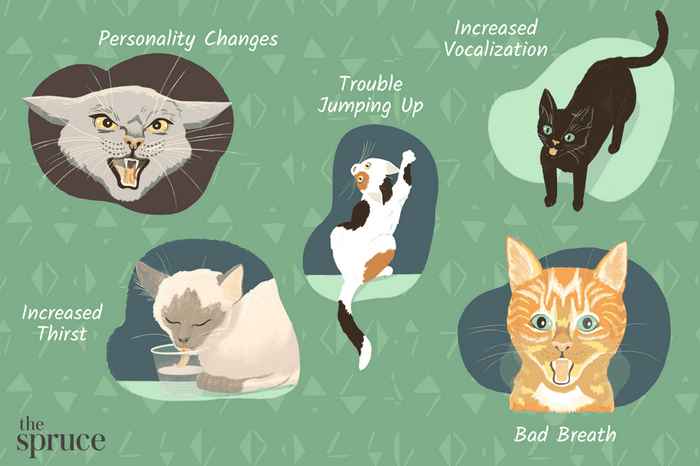
So we have compiled some of the most common signs that cats exhibit that every pet owner needs to keep in mind. Now, none of this is written by a vet and even if these statements are backed up by doctors, it is still better to go to a vet yourself rather than getting worried over nothing. Below are just some of the signs that pet owners need to keep in mind. This is in no way a comprehensive list but it ought to help out any pet owner.
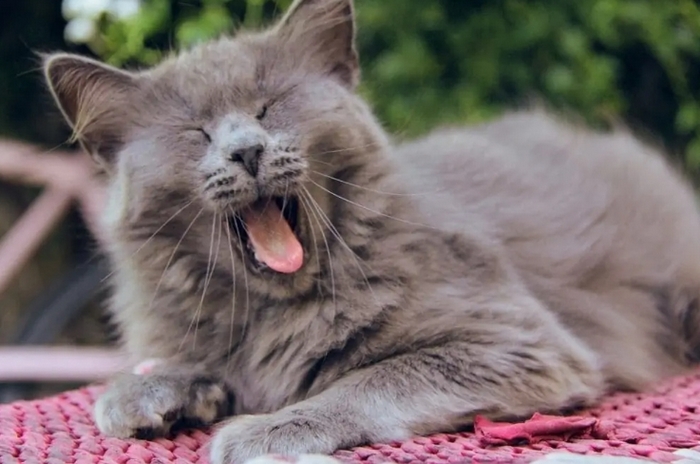
Now, this is the most common but the hardest sign to see. basically, as a pet owner, one has to set a baseline behavior for their cat before they can even think about spotting what is wrong with them. This may seem like an easy task at first but it can get extremely complicated since no one has time to be at their cat’s side 24/7 so the things that may seem out of place to you might just be normal things that they do every day.
So getting to know your cat is extremely important beforehand. After all, every individual cat is different and we cannot force one stereotype onto another kitty. However, some of the following symptoms can get pretty self-explanatory.
This is extremely easy to spot if your cat’s water bowl is near you and if you change that every few hours. Now, it is normal for a cat to drink a lot of water when the weather changes, especially when it is hot outside. However, if they’re drinking a lot without any long intervals, then it can indicate not only dehydration but other underlying issues as well like thyroid disease.
So if your cat has started drinking water from other places like toilets and such, then it might be time to bring them to the vet. On the other hand, if your cat isn’t drinking enough water then we might have a problem there too. Although cats on a wet or raw diet don’t usually need as much water as ones on dry food as wet food can provide a little hydration.
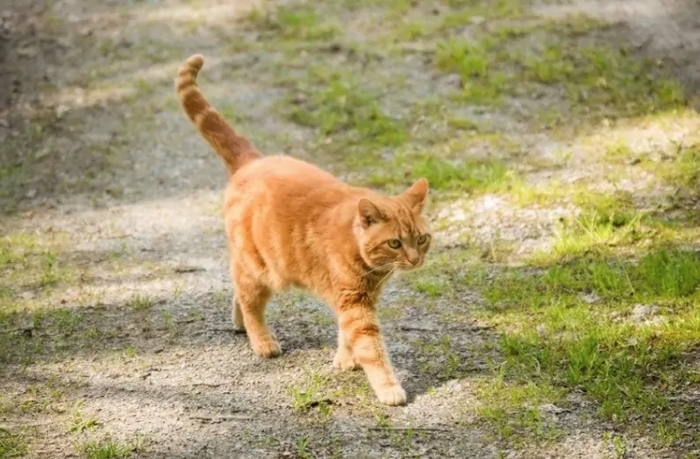
Limping is an easy thing to spot in most cats. Even if they are indoor cats, they can get into situations where they got stuck or made a high jump that left them injured. Even if you don’t see a wound, the underlying cause might still be there. And your cat might not be putting their weight on a paw that hurts.
Now, some cats do this sort of thing just to mess with you but they will usually stop in a few hours. If they continue to limp, it is important to check them for injuries and bring them to a vet, especially if they are vocal when you touch a spot.
Hair loss is pretty common in most cats. We all know that while fluffy cats are adorable, they do shed a lot of hair. So if you find hair all over your black dress, it is usually not a cause for concern. And every pet has a shedding season so a few months out of the year, they will shed more and you will see hair everywhere. However, if you are noticing extra hair even if you brush them daily or you see hair flying around every day, then it might be time to pay close attention to that.
Many cats do shed more when they are anxious like when you groom them or give them a bath but that subsides after a few hours. However, if you’re starting to see patches from where they are losing hair then this might be caused by an allergy or fleas and they need to be taken to the vet immediately.
Swelling can be hard to pinpoint unless you brush them every day and check them for swelling. However, cats are quite intelligent and they will try to let you know in their own way that something is wrong. So if you see a cat sleeping weirder than usual or putting its weight on one side, it might be better to check them for any swelling.
It might not be a cause for concern right away but if the swelling doesn’t subside in a few days and if there is an abscess or it feels warm when you touch it, a trip to the vet is highly recommended in that scenario. It might be nothing but do we really want to take that chance?
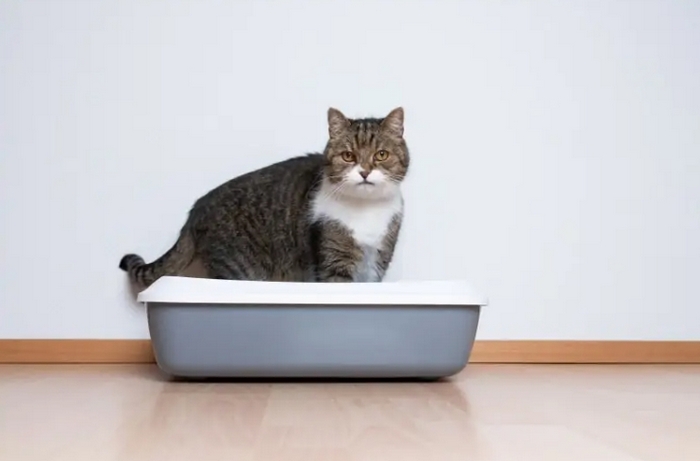
This is pretty self-explanatory. Now I wouldn’t say that a trip to a vet is extremely necessary if there is only light diarrhea as it might be caused by food changes or something similar. Cats can also get diarrhea after a deworming which is completely normal. Vets also recommend keeping a syrup for the cat’s stomach on hand so you can administer it yourself.
However, a call to the vet to get the go-ahead is necessary. Sometimes, these things just happen and it does not reflect on anything the cat owner had done. We can all get stomach problems sometimes and it is very normal. However, if it persists, then a vet visit is necessary.
Vomiting up hairballs is extremely common for some cats while other cats never do this. So it is important to know what your cat’s baseline behavior is. However, if your cat is vomiting up every time they eat then they might be susceptible to dehydration and the underlying cause can be a myriad of things from liver disease to intestinal blockage.
In this case, it is recommended to confer with your vet and see how you can help relieve your cat of this issue. Although if they have started vomiting after a de-worming or a vaccine, then that can be chalked up to the medicine and nothing else.
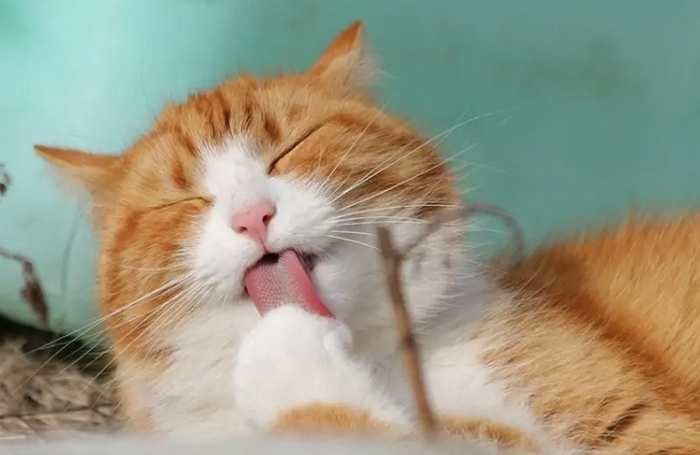
Cats grooming habits can tell you a lot about their health. While cats are known for getting comfortable in a spot and doing weird acrobatics so that they can clean their fur, excessive grooming can be caused by anxiety which can lead to hair loss and sensitive skin.
One thing to note here is that cats do tend to groom a bit more when it is warm outside but if they are doing it too much, a conversation with your vet might be the best way to go in this scenario. On the other hand, if they are not grooming enough and you have noticed that their fur is getting matted, the underlying cause can be a skin allergy or dandruff.
It is pretty common for us to call cats lazy. But this can actually harm your perspective when you’re checking signs of illness in your kitty. Some cat breeds are extremely playful and high in energy levels. So if you have seen your cat sleeping a lot more than usual when it used to play around, this might mean that they are feeling unwell so a vet visit might be the way to go.
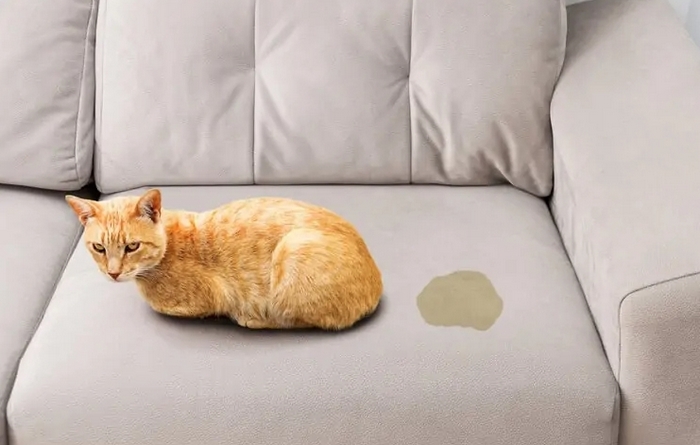
Paying close attention to your cats urinating habits might seem like a weird thing to do but it is an extremely important part of making sure that your cat is healthy and happy. If your cat has recently started urinating close to or outside the little box, then it might be trying to tell you something.
Male cats especially are susceptible to ureteral obstructions and this can cause them extreme pain. If your cat is also urinating more frequently but in smaller amounts, this can also be a cause for concern. And if you ever spot blood in their urine then you don’t need me to tell you then you need to take them to the vet immediately.
A little bit of nose and ear discharge is normal when it comes to cats. Just as humans have nasal discharge, cats have the same problem. And some breeds like punched-face cats do tend to get a bit more nasal discharge or eye discharge than other breeds. However, if you start to smell something when cleaning out their nose, or eyes then a trip to the vet is necessary. This can be caused by an infection or they might be suffering from some sort of allergy. All of that to say, this is not the biggest issue at first but it can morph into a serious illness if not caught early enough.
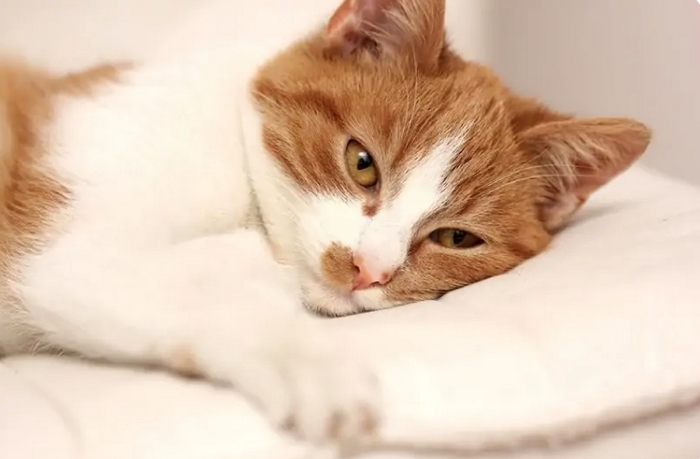
People don’t usually care about the dental area when it comes to cats since dry food usually helps cats keep their teeth clean. And not only that but there are special treats out there in the market which are made specifically for that. However, if you have started to notice bad breath when your cat is close to you, this can indicate stomach problems. There can also be an infection of the mouth which does need immediate medication and help. So if you do notice that something is off, bring your cat to the vet as soon as possible.
Ear issues are sadly more common than you think in most cats. As I said before in the discharge paragraph, a little discharge is completely normal. All cats get ear wax and it is necessary to clean their ears out semi-regularly with a clean slightly wet gauze or with some saline. However, if you have started noticing a high amount of discharge and if it is starting to smell, then that might be a cause for concern.
This can actually mean that they have an ear infection or fleas in their ear area. If you also notice a bit of blood then this can also indicate that they have been scratching their ears incessantly. A trip to the vet is recommended in this situation as well.
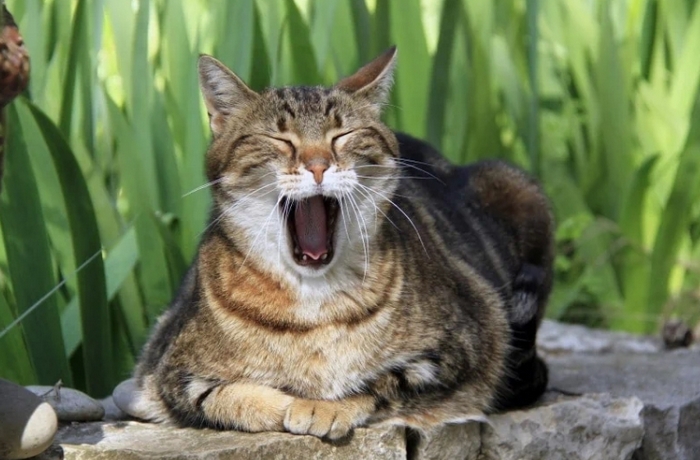
All cats scratch themselves with their paws. It may be while they are grooming or they might just feel a bit itchy. This is completely normal as humans can feel itchy for no reason as well. However, if they are doing it incessantly on one specific part of their skin, this can indicate fleas or some type of skin allergy.
If you have also started to see scratches, then your cat is trying to tell you something. So checking them for fleas or wounds may be the right thing to do in this scenario. If you do end up finding fleas, a good flea shampoo can help but only if your vet recommends it.
Cats are fully grown in one year. And this means that their weight can change quite rapidly in the first few months that you get them. This is why regular checks up are necessary especially in their growing years so you know that they are at a healthy weight. But if you are noticing that they are losing a lot of weight even when their diet hasn’t changed, this can be a cause for concern.
Extreme weight loss can be an indicator of parasites or diabetes. On the other hand, if you have noticed your cat gaining a lot more weight even when the diet is the same as before, it might be that they are getting food from someplace else or you need to bring them to the vet immediately.
Appetite changes are pretty easy to spot especially when you go to refill their bowl. And while cats don’t really have the feeling of fullness that humans get, it is never good to give them as much as they want as this can lead to obesity which is not healthy for a cat no matter how adorable it may look. Loss of appetite on the other hand can be for a few reasons and none of those reasons are good. Sometimes it is just because they don’t like that particular brand of food or want something new but if nothing else works, a conversation with a vet might be necessary to rule out any underlying conditions.
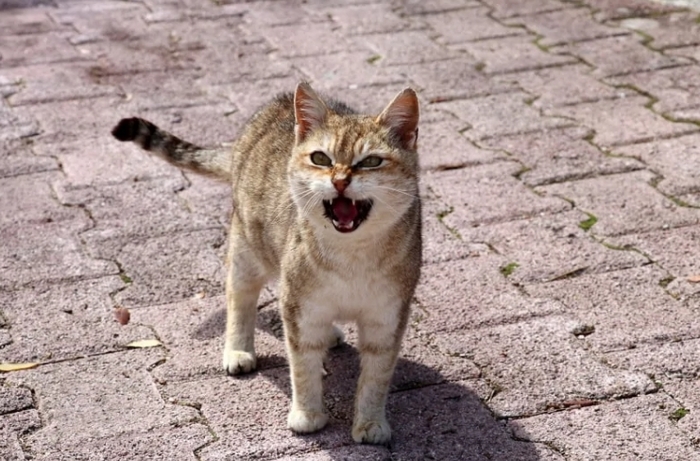
The meows that humans are so used to hearing are not actually the ways cats communicate with each other. Cats usually only meow when humans are nearby. And it is usually only done when they want attention or treats. This is pretty normal and they might be screaming in your ear at dawn because they are hungry.
However, if you have noticed them vocalizing a lot more than usual even when they have food and won’t let you touch them, then they might be trying to tell you that something is wrong. If this behavior continues, a vet visit can’t hurt. Although, we have to keep in mind that some cats just like to meow and that it is normal for some cat breeds to vocalize more than others.
I know people love to call cats a**holes and that cats can get aggressive when you pat them in a place that they don’t want to touch like their stomach but is usually done in a playful way and they aren’t actually trying to hurt you even if you might end up with a scratch or two. However, if you see them getting more and more aggressive by the day, this can indicate hormonal changes or an underlying issue that is causing them to act out. After all, don’t we get prissy when we are sick and everything hurts? Cats are the same way.
Cats love jumping to places they are not used to. Even if you have an indoor cat and you have never let them go outside, they do still love jumping up to high places. So if you notice your cat laying on the ground when it used to love lying on that one spot on the table, then this can indicate an injury or development of arthritis. Now, cats do tend to jump and climb less as they age but if your kitty is young and seems lethargic, a trip to the vet can help you rule out any underlying cause for the behavior change.
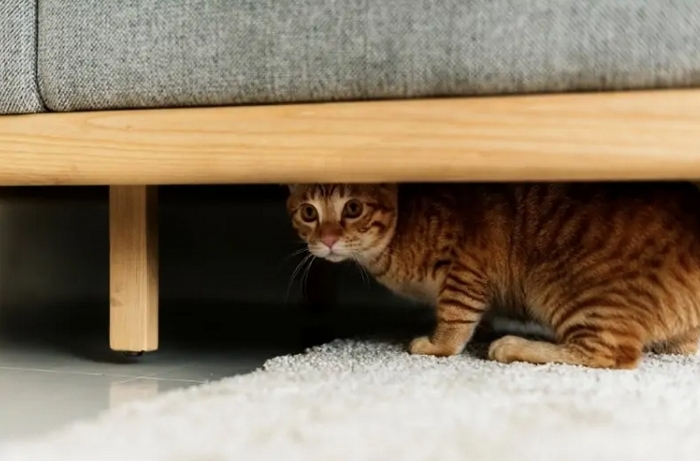
Now, cats love hiding in places. I am sure you have seen your cat hiding under the couch just so it can pounce on your ankles when you least expect it. And while this is normal behavior, always hiding is not a good sign. If you have just gotten a cat, then they might be doing it to feel safe and get the lay of the land.
However, if your usually playful kitty is hiding under the bed and refusing to come out, this might be a sign of pain and discomfort. Studies have shown that cats tend to isolate themselves when they are feeling unwell so keeping a close eye on your cat might be the way to go in this situation.
These are just some of the signals that cats can exhibit which help us identify problems with their health. However, all of these are just some signs and even if your cat exhibits some of them, it doesn’t always mean that they are unwell. Getting them regular checkups at the vet is always the way to go just so you don’t have anything to worry about.